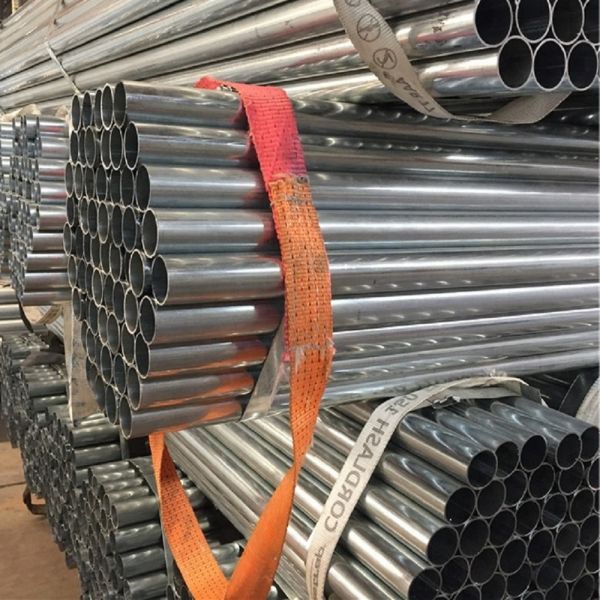Here's an overview of galvanized steel pipes
2024-05-10
A galvanized steel pipe is a steel pipe that has been coated with a protective layer of zinc through a process called galvanization. Here's an overview of galvanized steel pipes and their characteristics:
1. Base Material: Galvanized steel pipes are typically manufactured from plain carbon steel or low-alloy steel. These base materials are formed into pipes through processes such as hot rolling or cold drawing before undergoing galvanization.
2. Galvanization Process: The galvanization process involves immersing the steel pipe in a bath of molten zinc or applying a zinc coating using other methods such as electroplating or hot-dip galvanizing. The zinc coating bonds tightly to the surface of the steel, forming a protective barrier against corrosion and rust.
3. Corrosion Resistance: The zinc coating on galvanized steel pipes provides excellent corrosion resistance, making them suitable for outdoor and high-moisture environments. The zinc layer acts as a sacrificial anode, corroding preferentially to protect the underlying steel from rust and corrosion.
4. Durability: Galvanized steel pipes are known for their durability and long service life. The zinc coating provides a robust protective barrier that helps prevent damage from scratches, abrasion, and exposure to harsh environmental conditions.
5. Versatility: Galvanized steel pipes are used in a wide range of applications across various industries. They are commonly used in plumbing and water supply systems, irrigation, construction, fencing, and structural applications. They are also used in automotive manufacturing, HVAC systems, and industrial machinery.
6. Sizes and Dimensions: Galvanized steel pipes are available in a variety of sizes and dimensions to meet different application requirements. They may come in standard sizes such as NPS (Nominal Pipe Size) or OD (Outside Diameter), with varying wall thicknesses.
7. Joining Methods: Galvanized steel pipes can be joined together using various methods, including threaded connections, welding, or mechanical couplings. Threaded connections are commonly used for smaller diameter pipes, while welding is used for larger diameter pipes or in applications requiring a strong and permanent bond.
8. Environmental Considerations: While galvanized steel pipes offer excellent corrosion resistance and durability, the zinc coating can eventually degrade over time, especially in highly corrosive environments. Proper maintenance and periodic inspection are important to ensure the long-term performance of galvanized steel pipes.
Overall, galvanized steel pipes are valued for their corrosion resistance, durability, and versatility in a wide range of applications. Whether used in plumbing, construction, or industrial applications, galvanized steel pipes provide reliable protection against rust and corrosion, making them a preferred choice for many industries.



